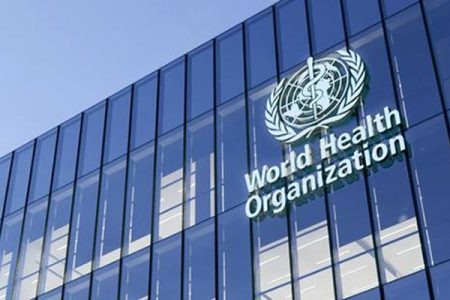The World Health Organization (WHO) has raised the alarm over a decline in global government spending on health.
According to the 2024 Global Health Expenditure Report, the average per capita spending on health dropped across all income groups in 2022, reversing the increase witnessed during the early years of the COVID-19 pandemic.
The report, titled Global Spending on Health: Emerging from the Pandemic, was released in line with the Universal Health Coverage (UHC) Day campaign on December 12.
The 2024 campaign focuses on improving financial protection to ensure equitable access to health services for all.
Financial hardship for millions
Dr. Tedros Adhanom Ghebreyesus, WHO Director-General, emphasized that while access to health services has improved globally, the financial burden of using these services continues to push many into hardship or poverty.
“Universal Health Coverage Day is a reminder that health for all means everyone can access the health services they need without financial hardship,” Dr. Ghebreyesus said.
The report highlights that 4.5 billion people worldwide lack access to basic health services, while 2 billion face financial hardship due to health-related expenses.
This stark reality underscores the need for sustained government spending on health to achieve UHC.
Out-of-pocket payments drive inequality
In 30 low- and lower-middle-income countries, out-of-pocket payments remain the dominant source of health financing.
In 20 of these countries, patients bear over half of all health expenses, perpetuating cycles of poverty and vulnerability.
Even in high-income nations, financial hardship persists.
The report reveals that in over a third of these countries, more than 20% of total health spending comes directly from individuals’ pockets.
This trend disproportionately affects poorer households, leading to unmet healthcare needs.
WHO urges action on universal health coverage
WHO has called on global leaders to make UHC a national priority and eliminate impoverishment caused by health costs by 2030. The organization recommends several strategies, including reducing or eliminating user fees for vulnerable populations, enacting laws to protect individuals from catastrophic health expenses, and creating health financing systems funded through public budgets to cover entire populations.
Public health budgets, WHO noted, should provide for essential services such as health promotion, prevention, treatment, rehabilitation, and palliative care using a primary healthcare approach.
Lessons from the COVID-19 pandemic
The COVID-19 pandemic underscored the importance of government health budgets in responding to emergencies. Public spending enabled rapid action, particularly in funding population-based interventions, which proved more effective than other financing mechanisms during the crisis.
Global collaboration for health equity
This year’s UHC Day also marked a significant discussion on advancing support and collaboration among nations to achieve UHC and strengthen health security.
WHO’s UHC Partnership, a flagship initiative supported by global donors including the European Union, Canada, and Japan, focuses on building resilient health systems worldwide.
As the world grapples with the consequences of reduced health spending, WHO’s message is clear: governments must prioritize health to ensure equitable access and protect millions from falling into poverty due to healthcare costs.
The organization calls for collective action to make health for all a reality by 2030.
- President Mahama Calls for unity at Eid Al-Fitr celebration - 31 March 2025
- We are all Natasha, and we don’t kiss just anybody - 31 March 2025
- MTN FA Cup: Kotoko to face Berekum Chelsea in semis - 31 March 2025

